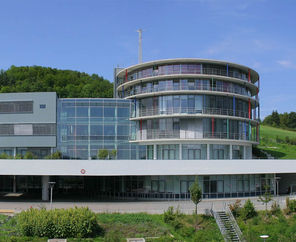With 80 institutes and an outstanding tradition, the Max Planck Society is one of the most important research institutions in existence. With 17 Nobel Laureates in the ranks of its scientists, it is recognized as part of the scientific elite worldwide. Basic research in Max-Planck institutes follows the so-called Harnack principle: The Institutes are created exclusively around worldwide leaders in science. These leaders themselves decide which research topics to pursue and select their employees themselves. The overall orientation of the Max Planck Society and all its institutes is of an equally international nature.
This is also true of the Max Planck Institute for Biogeochemistry in Jena, which is dedicated to investigating global cycles of the elements essential for life – carbon, oxygen, hydrogen and nitrogen – and their impact on our climate. These cycles are exceedingly complex, and not only due to the dovetailing of biological, chemical and physical processes or the planetary scope of the factors involved. Increasingly, there are also human-made factors that influence these processes – to an extent that the scope and consequences of these factors still elude our comprehension.
With this in mind, in their research of "earth as a system", the institute's roughly 220 employees from more than 25 different countries (including more than 60 scientists and an equal number of doctoral students) direct most of their attention to five overarching questions:
- What are the key processes controlling biogeochemical fluxes and what are their environmental and anthropogenic driving factors?
- How can we integrate process understanding and observations made at differing temporal and spatial scales to quantify or diagnose the dynamics of global biogeochemical cycles?
- What is the role of biological processes and biodiversity in the Earth System?
- Can we quantify the feedbacks between physical climate and biogeochemistry – regionally and globally?
- How do land use and management change the system behavior?
Working in interdisciplinary teams conducting theoretical and experimental research, the biologists, meteorologists, geologists, chemists and mathematicians at MPG-BGC are zeroing in on the answers to these questions.






